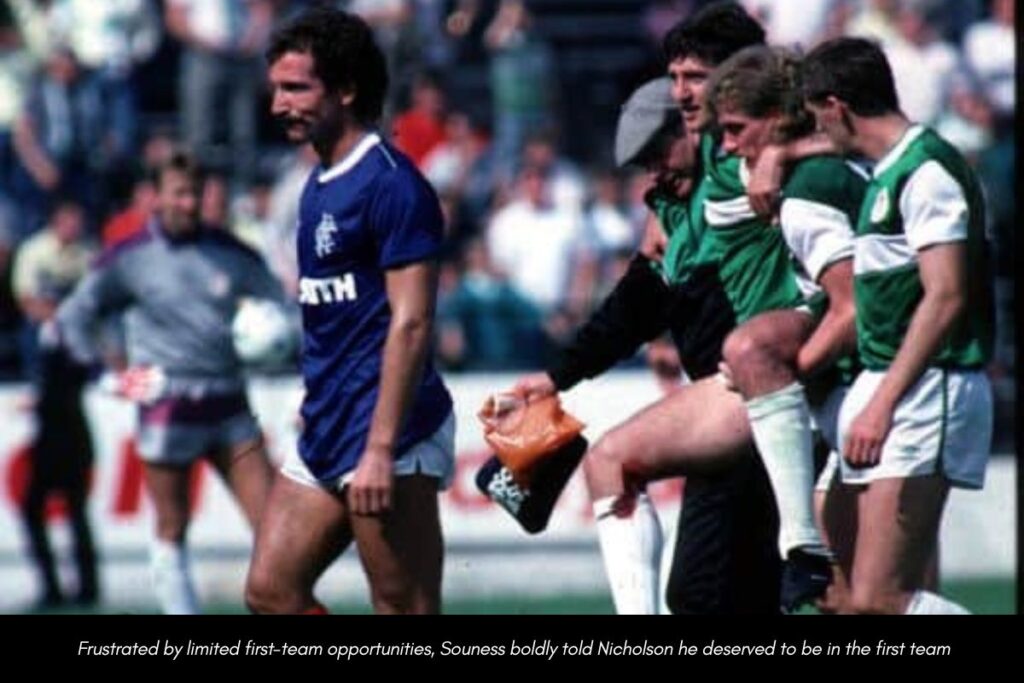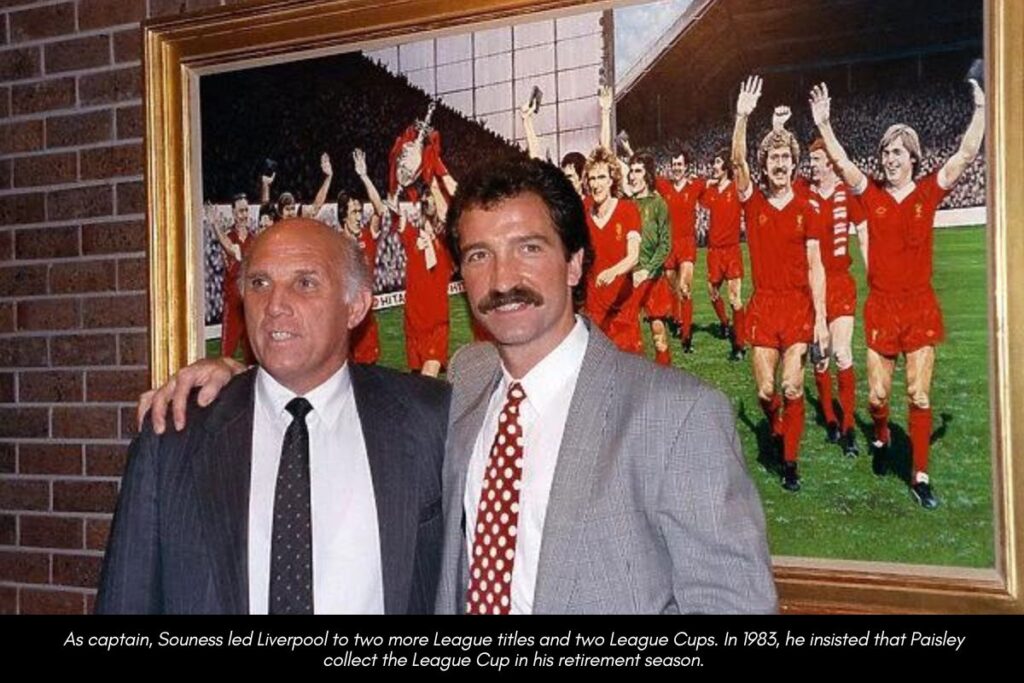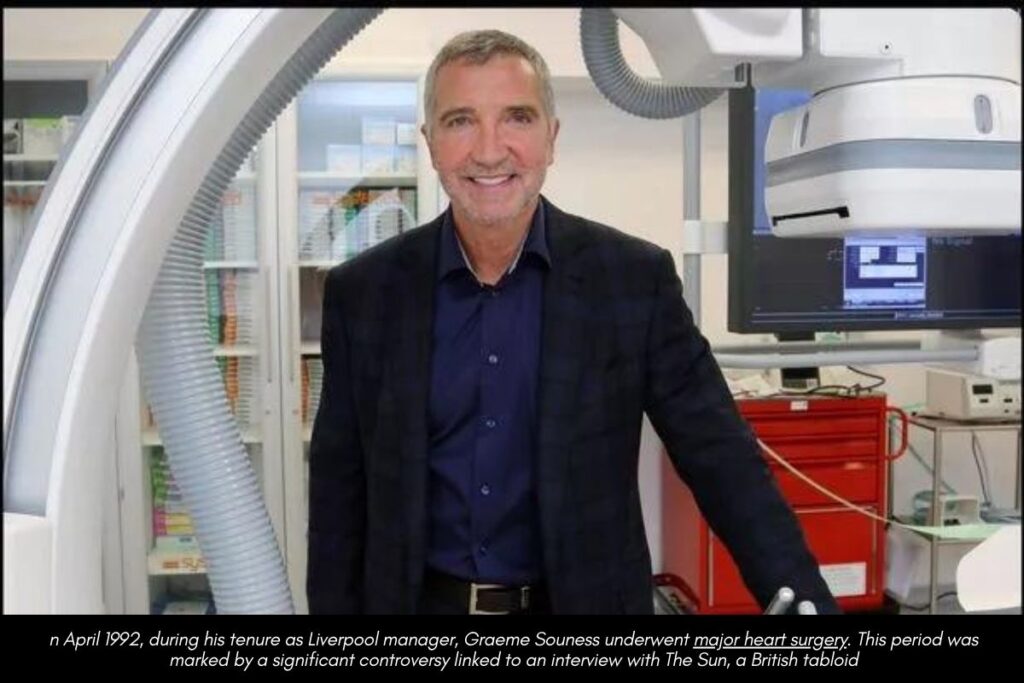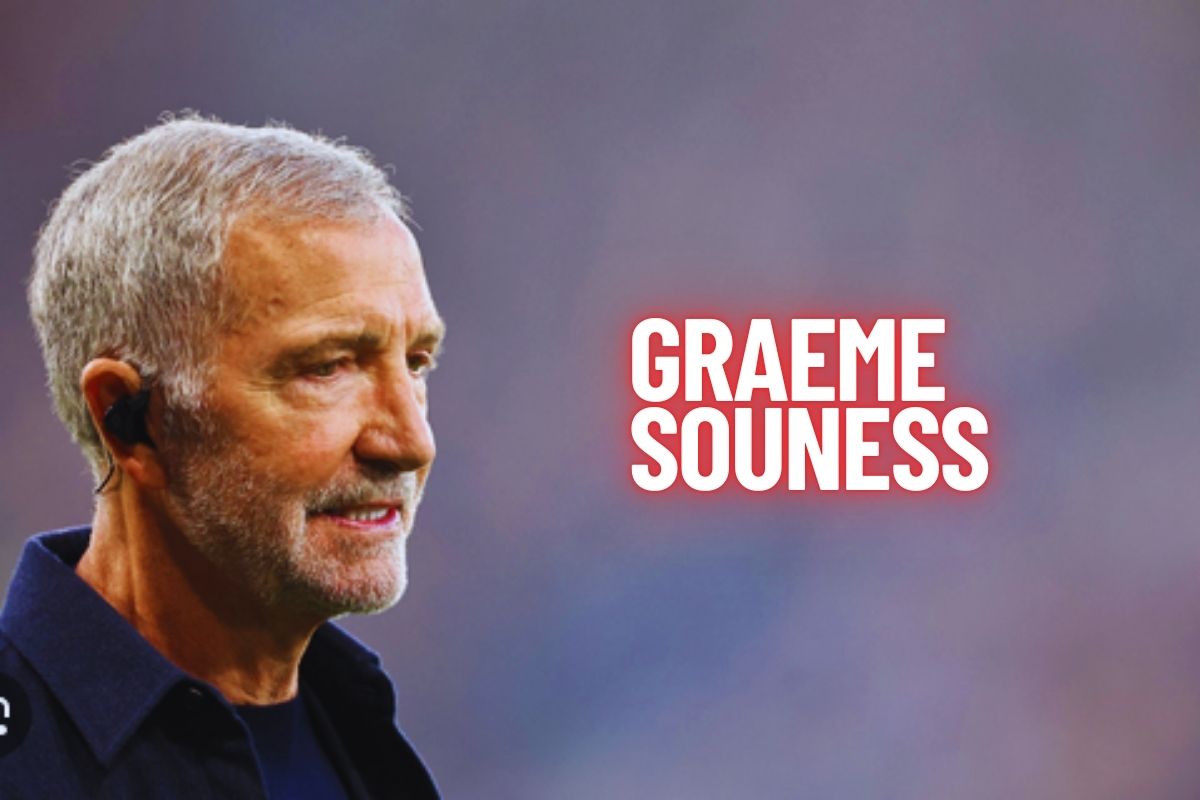Graeme Souness CBE, born on 6 May 1953, is a distinguished Scottish former footballer, manager, and TV analyst. Known for his dominant midfield presence, Souness excelled with Liverpool in the late 1970s and early 1980s, winning five First Division championships and three European Cups. He captained Liverpool for three seasons before transferring to Sampdoria in 1984. As a manager, Souness guided Rangers to numerous titles and also managed clubs like Galatasaray and Newcastle United. Internationally, he earned 54 caps for Scotland and captained the national team 27 times.
Early Career Before Liverpool
Graeme Souness grew up in the Saughton Mains area of Edinburgh, supporting Hearts and Rangers. As a teenager, he played for the local boys’ club, North Merchiston. Souness began his professional career as an apprentice at Tottenham Hotspur under manager Bill Nicholson, signing professional terms at 15 in 1968. Frustrated by limited first-team opportunities, Souness boldly told Nicholson he deserved to be in the first team. He made a single first-team appearance for Spurs, coming on as a substitute in a UEFA Cup match. In the summer of 1972, Souness played for Montreal Olympique in the North American Soccer League, featuring in 10 of the team’s 14 matches and earning a spot on the league’s All-Star team.

Tottenham sold Graeme Souness to Middlesbrough for £30,000 in 1972. He debuted for Middlesbrough on 6 January 1973 in a 2–1 league defeat to Fulham at Craven Cottage and scored his first goal on 11 December 1973 in a 3–0 win over Preston North End at Ayresome Park. During his time at Middlesbrough, Souness’ tenacious playing style began to gain recognition. In his first season, Middlesbrough finished fourth in the league, just missing promotion.
Jack Charlton took over as Middlesbrough’s manager in May 1973, marking his first managerial role. One of Charlton’s initial signings was Bobby Murdoch, a seasoned midfielder from Celtic and a fellow Scot, who Souness later credited as a key influence on his playing style. Under Charlton, Middlesbrough won promotion as champions of the Second Division in the 1973–74 season. Graeme Souness’ impact was highlighted by his hat-trick in the season’s final game, an 8–0 triumph over Sheffield Wednesday.
When Did Souness Manage Liverpool?
Graeme Souness is best remembered for his illustrious seven seasons at Liverpool, where he won five League Championships, three European Cups, and four League Cups. He joined Liverpool in January 1978, replacing veteran Ian Callaghan. Manager Bob Paisley, seeking reinforcements, signed three key Scottish players: Alan Hansen, Kenny Dalglish, and Souness, who arrived from Middlesbrough for a club-record fee of £350,000.
Souness debuted for Liverpool in a 1–0 victory over West Bromwich Albion on 14 January 1978. His first goal, a stunning volley, came in a 3–1 win against Manchester United on 25 February 1978. He played a crucial role in Liverpool’s 1978 European Cup victory, assisting Kenny Dalglish’s winning goal against FC Bruges. Graeme Souness was instrumental in Liverpool’s league titles in 1978–79 and 1979–80 and scored a hat-trick in the 1981 European Cup quarter-final against CSKA Sofia, leading to another European triumph. In 1981, Paisley made Souness the club captain, a decision that sparked tension with the former captain, Phil Thompson.

As captain, Souness led Liverpool to two more League titles and two League Cups. In 1983, he insisted that Paisley collect the League Cup in his retirement season. In the 1983–84 season, Souness scored the winning goal in the League Cup final replay against Everton, secured another league title, and won the European Cup after a dramatic penalty shootout against Roma. Graeme Souness’ tenure at Liverpool ended in 1984, having made 358 appearances and scored 56 goals, leaving a lasting legacy at Anfield.
Joining Sampdoria and Rangers
In 1984, Graeme Souness left Liverpool and joined Sampdoria for £650,000. Teaming up with Trevor Francis, Souness added veteran experience to a young squad featuring future Italian stars like Roberto Mancini, Pietro Vierchowod, and Gianluca Vialli. In his first season, Sampdoria won the Coppa Italia, defeating Milan 3–1 on aggregate, with Souness scoring the only goal in the first leg.
Souness moved to Rangers in 1986 as player-manager, marking the start of his managerial career. His debut, however, was turbulent, receiving two yellow cards in the first 34 minutes against Hibernian. Disciplinary issues, a recurring theme in his career, surfaced again at Rangers, coupled with injuries. Despite these challenges, he made 73 appearances (50 in the league), scoring three goals. His final appearance came in a 2–0 victory over Dunfermline Athletic in the last home match of the 1989–90 season, playing the final 20 minutes.
Undergoing a Major Heart Surgery
Graeme Souness returned to Liverpool after his time with Sampdoria and Rangers. He rejoined Liverpool as the manager on 16 April 1991, signing a five-year contract. Souness took over from Ronnie Moran, who had been serving as the caretaker manager following Kenny Dalglish’s resignation. Despite some initial squad reorganization and a notable FA Cup victory in 1992, Souness’s tenure as Liverpool manager was challenging and ultimately not as successful as his playing career at the club.
In April 1992, during his tenure as Liverpool manager, Graeme Souness underwent major heart surgery. This period was marked by a significant controversy linked to an interview with The Sun, a British tabloid. The interview, conducted after Liverpool’s FA Cup semi-final victory against Portsmouth, featured Souness celebrating the win and his successful surgery. A photograph showed him kissing his girlfriend in his hospital ward, symbolizing both personal and professional triumph.

However, the timing of the interview’s publication ignited outrage among Liverpool fans. Initially intended to coincide with the match report on 14 April 1992, the piece was delayed and instead published on 15 April, the third anniversary of the Hillsborough disaster. The Sun was already despised on Merseyside due to its false reporting of the disaster, and Graeme Souness’s choice to engage with the tabloid was seen as a severe misjudgment, especially since he had previously barred Liverpool players from talking to the paper. Although Souness apologized for the incident, the backlash was intense, with many fans calling for his resignation.
Reflecting on the event later, Graeme Souness acknowledged that he probably should have stepped down at that time. Despite medical advice, Souness attended the 1992 FA Cup Final, where Liverpool defeated Sunderland 2-0.
Other Careers Explained
After leaving Liverpool, Graeme Souness spent over a year out of work before taking up the managerial position at Galatasaray in Turkey in June 1995. His time there was marked by a controversial incident where he planted a large Galatasaray flag in the center of Fenerbahçe’s pitch, nearly inciting a riot and earning him the nickname “Ulubatlı Souness.”
Souness then returned to England to manage Southampton in 1996. His tenure at Southampton is infamously remembered for signing Ali Dia, who turned out to be a fraud. Despite avoiding relegation, Souness resigned after one season due to differences with chairman Rupert Lowe. He moved back to Italy in 1997 to manage Torino but was dismissed after just four months due to conflicts with the club’s owner regarding player decisions. Later that year, Souness joined Benfica in Portugal. Despite bringing in several British players, his tenure was short-lived, and he left the club 18 months later, citing issues with the chairman João Vale e Azevedo.
In March 2000, Souness became manager of Blackburn Rovers, leading them to promotion back to the Premier League and securing a League Cup victory in 2002. He left Blackburn in 2004 to manage Newcastle United. Despite some initial success, Souness struggled with injuries and inconsistent performances, leading to his dismissal in February 2006. He did not return to football management thereafter.
Giving Back to the Society
In May 2023, Graeme Souness initiated a fundraising campaign for DEBRA, a charity dedicated to finding a cure for epidermolysis bullosa, a rare and painful genetic skin disorder. As part of his commitment, Souness announced his intention to swim the English Channel. On June 18, 2023, he completed the swim as part of a six-person relay team, wearing a wetsuit for the challenging endeavor.
This remarkable effort succeeded in raising £1 million for DEBRA. Souness’s dedication to this cause highlights his compassionate side, using his public profile to bring attention and resources to vital medical research and support. This charitable venture not only underscores his physical endurance and team spirit but also demonstrates his willingness to engage in significant acts of philanthropy, leveraging his fame for the greater good.
Conclusion
Graeme Souness’s career is a testament to his tenacity, leadership, and versatility. From his early days at Tottenham Hotspur to his celebrated tenure at Liverpool, and through his managerial roles across Europe, Souness has left an indelible mark on football. Beyond the pitch, his charitable efforts, such as his remarkable swim for DEBRA, reveal a compassionate and determined individual committed to making a difference. Despite controversies and challenges, Souness’s legacy in football and philanthropy endures, illustrating the profound impact one person can have both in sports and in the broader community.
Read all other posts on Graeme Souness
Find the Latest News on Player Ratings | Transfers | Prematch | Postmatch
Stay tuned for more updates on Liverpool FC Times and Stories. Your thoughts are always welcome in the comments section. Thank you for your continued support!
YNWA (You’ll Never Walk Alone)!
The Liverpool FC Times Team
LiverpoolFCTimes.com
